Along Vs Across Know The Difference

Along Vs Across What S The Difference Across and along are both prepositions that indicate movement or position in relation to a surface or line. however, they differ in terms of direction and orientation. across typically suggests movement from one side to the other, often implying a crossing or traversal of a surface or area. Along is used to describe movement or positioning in a continuous line next to or beside something, suggesting a path parallel to its length. across, in contrast, refers to movement from one side to another, often implying a crossing over or through an area or surface.
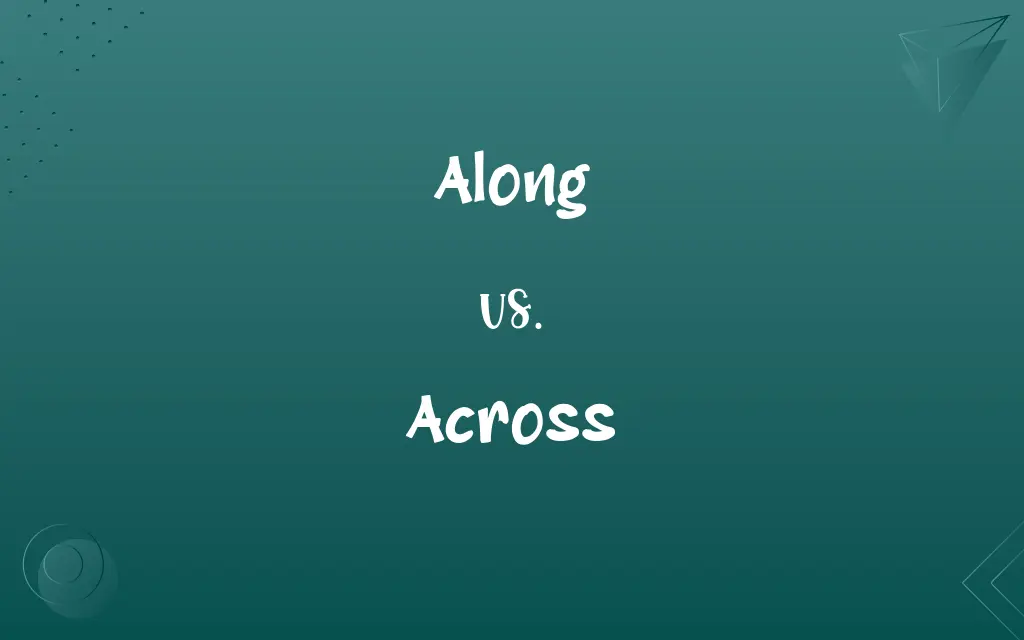
Along Vs Across Know The Difference Along vs. across: what's the difference? along refers to movement in a continuous line following a path or object, whereas across implies moving from one side to the other of something. Hello everyone, this channel is all about learning english. if you like my videos, don't forget to click the notification bell 🔔 so that your phone gets notified whenever i upload a new video. you. As prepositions the difference between along and across is that along is by the length of; in a line with the length of; lengthwise next to while across is to, toward, or from the far side of (something that lies between two points of interest). What's the difference between across and along? (n.) from side to side; athwart; crosswise, or in a direction opposed to the length; quite over; as, a bridge laid across a river. (adv.) from side to side; crosswise; as, with arms folded across. (adv.) obliquely; athwart; amiss; awry.
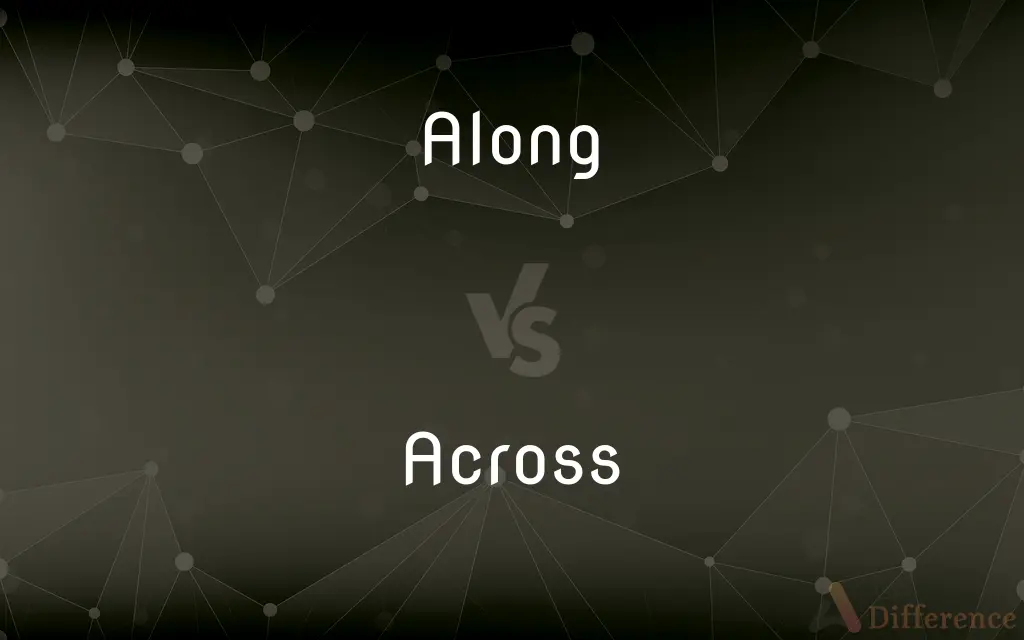
Along Vs Across What S The Difference As prepositions the difference between along and across is that along is by the length of; in a line with the length of; lengthwise next to while across is to, toward, or from the far side of (something that lies between two points of interest). What's the difference between across and along? (n.) from side to side; athwart; crosswise, or in a direction opposed to the length; quite over; as, a bridge laid across a river. (adv.) from side to side; crosswise; as, with arms folded across. (adv.) obliquely; athwart; amiss; awry. What is the main difference between “along” and “across”? “along” describes movement parallel to a line, while “across” describes movement from one side to the other. Along and across are two prepositions that are used to describe movements and directions. however, they cannot be used interchangeably since they have two different meanings. Is there any difference if i say "i went across the street" and "i went along the street"? yes, there is a big difference. if you go across the street you go from one sidewalk to the opposite one, for example from the west side to the east side, or the north side to the south side. In summary, the key difference between "along" and "across" is that "along" refers to movement in one direction, while "across" refers to movement from one side to another, typically involving a barrier or obstruction that needs to be crossed.
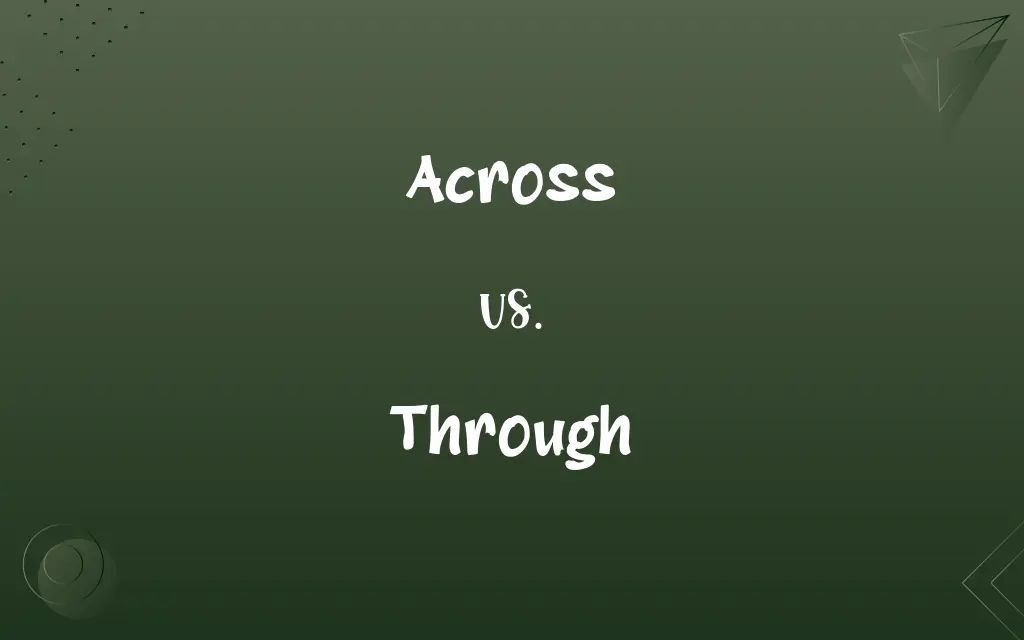
Across Vs Through Know The Difference What is the main difference between “along” and “across”? “along” describes movement parallel to a line, while “across” describes movement from one side to the other. Along and across are two prepositions that are used to describe movements and directions. however, they cannot be used interchangeably since they have two different meanings. Is there any difference if i say "i went across the street" and "i went along the street"? yes, there is a big difference. if you go across the street you go from one sidewalk to the opposite one, for example from the west side to the east side, or the north side to the south side. In summary, the key difference between "along" and "across" is that "along" refers to movement in one direction, while "across" refers to movement from one side to another, typically involving a barrier or obstruction that needs to be crossed.
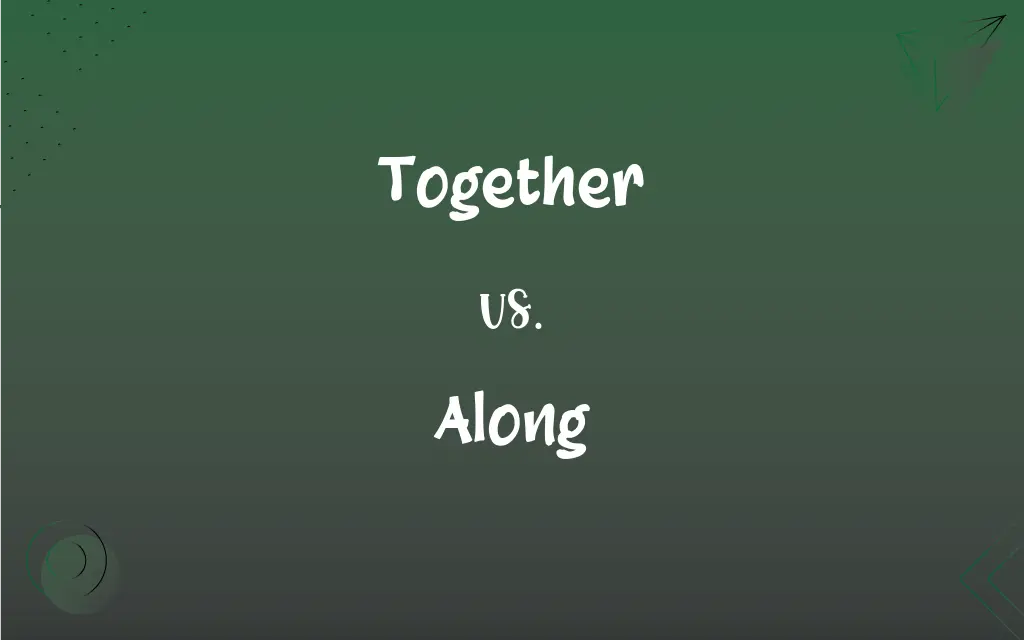
Together Vs Along What S The Difference Is there any difference if i say "i went across the street" and "i went along the street"? yes, there is a big difference. if you go across the street you go from one sidewalk to the opposite one, for example from the west side to the east side, or the north side to the south side. In summary, the key difference between "along" and "across" is that "along" refers to movement in one direction, while "across" refers to movement from one side to another, typically involving a barrier or obstruction that needs to be crossed.
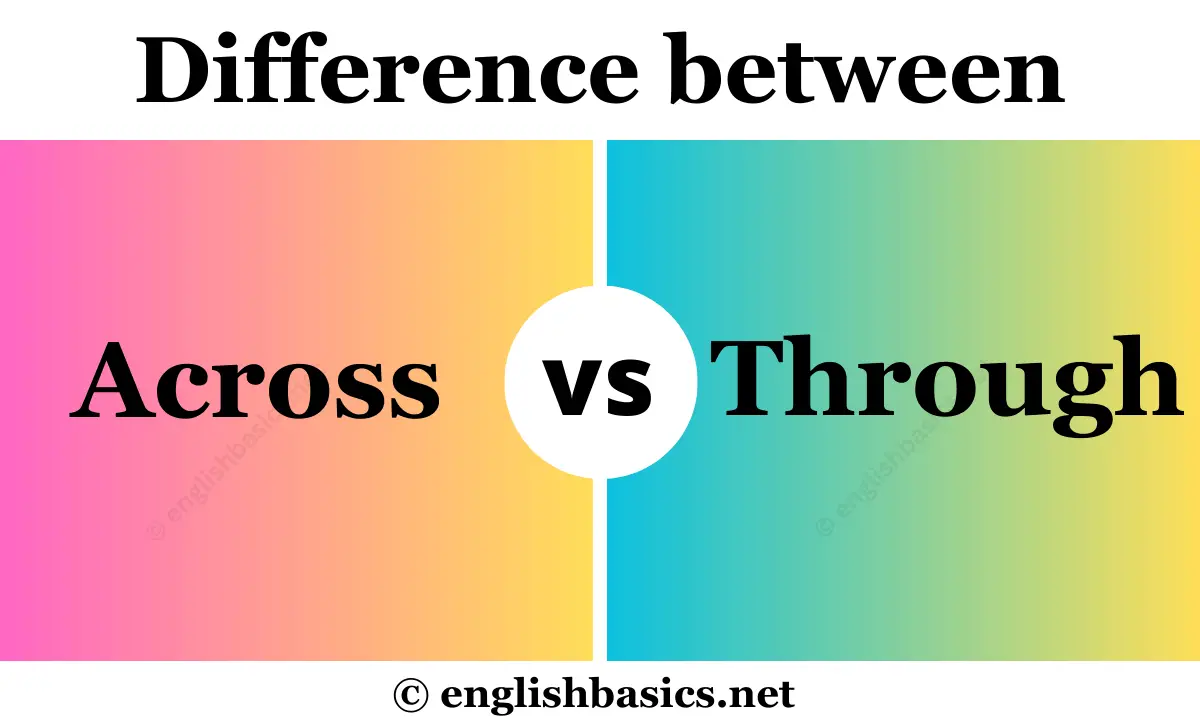
Across Vs Through What S The Difference English Basics
Comments are closed.